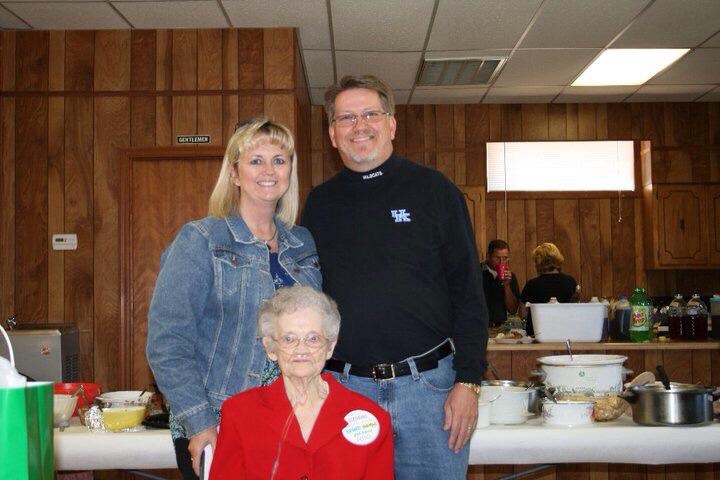
Last week we got the message that my last remaining grandmother, Pauline Wilson, who was in Hospice care was no longer eating, drinking, or going to the bathroom. I did Granddaddy’s funeral a few years ago, and so I knew it was time to put a funeral message together.
My wife and I had traveled to see Grandmother and extended family for “Grandmother’s Christmas Party” a couple weeks before Christmas. My 98-year-old grandmother was talkative and feeling okay that day.
On Sunday night, I was awake past three AM reflecting on so many memories and thinking through many passages of scripture which would be appropriate for such a godly woman. Grandmother was gloriously saved in a revival at age fourteen and “never got over it.” She and my grandfather helped to start the church where we held her celebration service. She was home with Jesus!
My grandparents had eight children, two that died very young. But those six children who lived to be adults married and resulted in 69 grandchildren, great grandchildren, and great great grandchildren. What a big family! In fact, with spouses, the family nearly filled the church by themselves.
Anyway, visitation and the time before and after the funeral were a family reunion. I heard several stories during the two days. There was laughter and tears, but we were all comforted by knowing without a doubt where Grandmother was.
So many in our society today are separated from biological family. Education and careers have contributed to physical distance. But each of us need people who serve as “family” for us. Sunday School classes can serve in that capacity.
This means, however, that relationships must be deepened OUTSIDE the classroom. Sunday morning is not enough relational time. Talking about ball games and work are not enough to develop koinonia. Such fellowship requires walking through life together. Yes, fun times should be planned. But time must also be set aside to walk together through the valleys.
When “family” relationships are present in a Sunday School class, members are excited and invite people to class time and fellowship times. Teaching-learning experiences are deeper and more meaningful as everyone supports each other. What can you do to develop “family” relationships?
Here are a few quick ideas.
- Enlist a member care leader to encourage relationship development and caring response beyond Sunday morning
- Enlist a fellowship and project leader to plan relationship-building activities
- Pray together as a class and in pairs
- Notice and respond with care to every absence
- Share affinities which can lead to connections
- Enjoy experiences together which can develop shared memories
- Enjoy meals together as a class and smaller groups within the class
- Have fun (fellowships) and serve (projects) together
What would you add? Please press Comments below and leave more ideas.
Leave a Reply